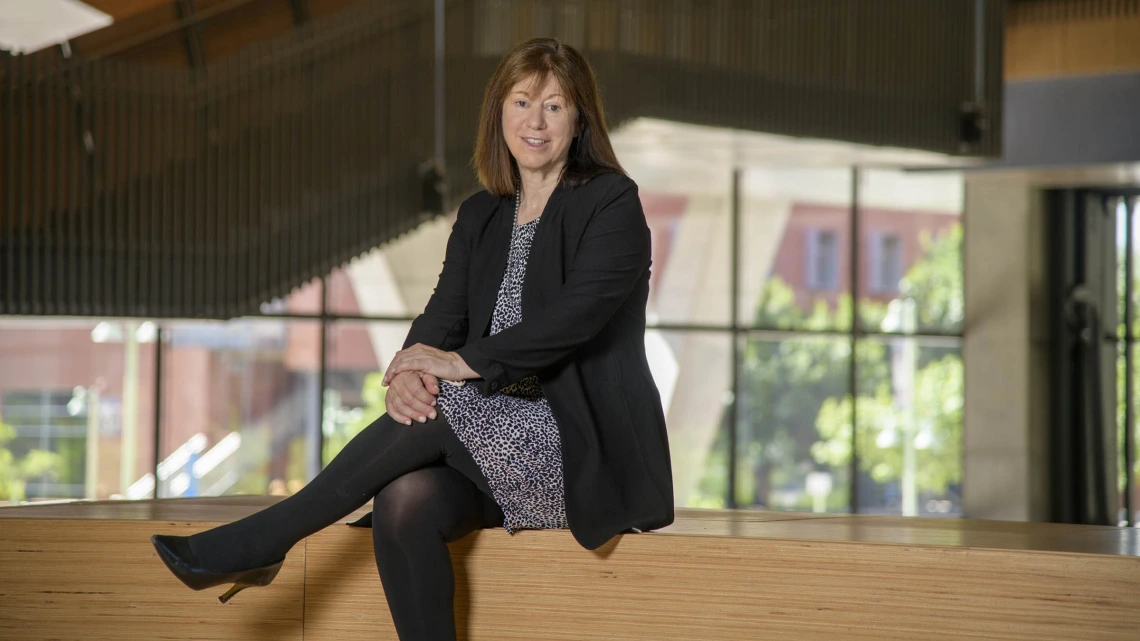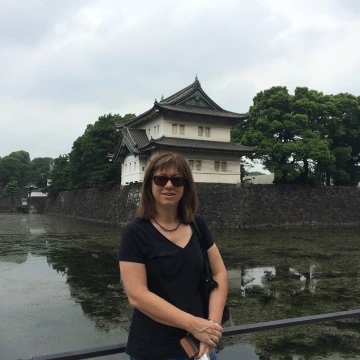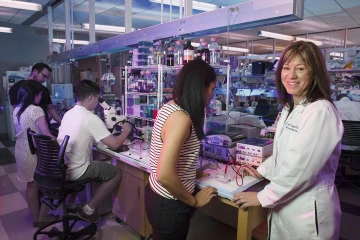Innovation, Connections Inspire Health Sciences’ International Director
Dr. Carol Gregorio wants to expand health care education for students and countries alike.

Carol Gregorio, PhD, is assistant vice provost for Global Health Sciences, head of the Department of Cellular and Molecular Medicine and co-director of the Sarver Heart Center.
Despite being an avid globe-trotter, Carol Gregorio, PhD, never imagined she’d be spearheading global education efforts for the University of Arizona Health Sciences when she accepted a faculty position in the former Department of Cell Biology and Anatomy at the College of Medicine – Tucson in 1996.
This April, Dr. Gregorio was appointed assistant vice provost for Global Health Sciences and interim executive director of UArizona Health Sciences International. Prior to her appointment, she had been co-leading the Health Sciences International strategic initiative while serving as vice dean for innovation and development in the College of Medicine – Tucson.
In her new role, she works with the five Health Sciences college deans and a team of faculty representatives from each college to expand Health Sciences education and research through new online master’s degree programs and microcampus dual-degree programs with partner universities around the world.
Global collaboration
Dr. Gregorio’s path from professor to online and global education advocate resulted from a desire to innovate and connect with others.

Dr. Gregorio loves to travel and counts Italy, Japan (pictured), the Galapagos Islands, South Africa, India and Mongolia among her favorite destinations.
While in her earlier role, she advocated for and secured funding to develop global programs. Her college-level efforts led to the invitation to lead the global and online initiative under the university’s strategic plan, and culminated in a University of Arizona International trip to Amrita University in India last December, where she was able to present her ideas for a dual-degree master’s program in cellular and molecular medicine.
Visiting Amrita University with fellow professors invested in global education was inspiring, she said, and connecting with faculty in person helped jump-start the partnership.
“The Amrita faculty were incredible, enthusiastic and receptive to ideas on how we could build a true one-of-a-kind biomedical program. Meeting in person over the span of a few days was instrumental in allowing us to build a unique education and research program. It was informative to observe what a top-notch program they have, to interact with Amrita students, and truly appreciate how beneficial this partnership could be, for all of us,” she said.
Under Dr. Gregorio’s guidance and the work of several College of Medicine – Tucson faculty, including Helen Amerongen, PhD, and Lonnie Lybarger, PhD, the first Health Sciences dual-degree program with Amrita will launch this fall.
Helping students and departments succeed
When Dr. Gregorio was named head of the Department of Cellular and Molecular Medicine in 2009, she consulted with colleagues across the country about how she could support faculty, expand the department’s research and educational missions and increase revenue to support essential department programs. She was advised to develop a master’s program, which resonated with her on a personal level.
“Expanding what we do in Health Sciences globally, in a truly interprofessional manner, really excites me.”Carol Gregorio, PhD, assistant vice provost for Global Health Sciences
“The courses I took as part of my own master’s degree in natural sciences gave me the chance to explore different directions that were not possible as an undergrad. It was life-changing for me,” she said.
She began by creating a certificate program in biomedical sciences that evolved into a fully accredited master's degree in cellular and molecular medicine. The degree also became the academic foundation of the College of Medicine – Tucson’s Pre-Medical Admissions Program. P-MAP is a 13-month, full-time, intensive medical school preparation program for students underrepresented in medicine.
“I’m very proud the degree is connected to P-MAP,” Dr. Gregorio said. “I loved the idea that we are creating an environment for highly promising students to be given the opportunity to succeed in medicine.”
Future plans
Future goals include developing research exchange programs for master’s students between UArizona Health Sciences and Amrita University as well as other global partners. Such programs are rare for graduate students and provide invaluable research exposure.

As co-director of the Sarver Heart Center and director of the Molecular Cardiovascular Research Program, Dr. Gregorio engages students in research when they are in high school and encourages them to continue that education as undergraduates, graduate students and postdoctoral fellows.
Dr. Gregorio continues to support online course and degree development, encouraging students and faculty, both globally and locally, to explore new arenas.
“Now I’m working with faculty in other countries to build innovative education and research programs,” Dr. Gregorio said, “in addition to collaborating with faculty from other colleges at the University of Arizona.”
“Everyone has their own expertise, and we’re learning from each other. Expanding what we do in Health Sciences globally, in a truly interprofessional manner, really excites me. It’s a niche, and we’re filling it.”

